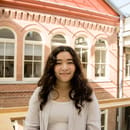When I decided to come to Queen’s, my two biggest fears were living away from my dog and being a minority—though the latter weighed more heavily on my mind. I grew up in a city where, despite having a large white population, I was comfortable to be myself and felt accepted. Unfortunately, that was not the case when I first arrived here.
I remember facetiming my hometown friends at other schools and seeing them make friends so easily, which made me question why my experience felt so different. While my friends were quickly finding their place, I struggled to connect, often feeling very isolated. Eventually, I was able to meet some great people that ultimately became my best friends; but I very quickly noticed a division between students that looked like me, and white students.
When talking to my friends about this it became apparent that we were not the only ones feeling this way. In the Queens 2023 Shift Survey, it was reported that 53% of students felt like they needed to hide some aspects of their identity to fit in, compared to 45% in 2021. A troubling trend—but why is it getting worse? After gathering testimonies from POC on campus, it was clear that this divide is felt across campus.
“From the first day, I felt like there was a social code that I didn’t get the memo for. I never really had trouble making friends—I loved meeting new people and planning things. But here, I felt like I was constantly trying really hard to get people to talk to me. It was especially difficult to see those same people act warmer to others upon first meeting them than they were to me.”
4th year Art Science Student
Although there were white students that were welcoming to me and others, I still felt a disconnect. It felt like we could never make it beyond classmates or peers, there was a limit to what our relationship could be. There is a culture at this school that I don’t seem to have a place in which is a hard pill to swallow. I’ve come to recognize the existence of this negative culture, but it’s something I no longer fear.
“I’ve found that about 30% of the white students are welcoming and inclusive, treating me no differently than anyone else. However, the remaining 70% tend to be more exclusive, creating a noticeable divide.”
4th year Health Science Student
It can be so easy to assimilate, fade into the background, change who I am and silence myself to blend in with the white voices. However, my culture, personality, and values are not things I’m willing to compromise just to ‘fit in.’ In fact, trying to blend in only reinforced white student’s racist behaviours and limited understanding of cultural differences.
“Queen’s was a major culture shock. I grew up in a diverse community, but here, I found myself surrounded mostly by white students. In first year, I was often one of the only POC in my lectures, residence, and even the clubs I joined, making it hard to feel fully included.”
2nd year Health Science Student
There are still moments when I feel painfully outcast, but I’ve learned to connect with others who share similar experiences as minorities. No matter the demographics of your school, there are always others who feel the same way, and you don’t have to navigate this journey alone. Finding that community can be transformative, reminding us that while our experiences may differ, we can support each other and create spaces where we all belong.
“I caught myself acting differently to find a place in the student culture around me. I would change how I spoke and even how I expressed myself. But trying to fit in only reinforced the gap between cultures and made me feel more isolated.”
3rd year Commerce Student
My goal with this piece is to encourage dialogue and understanding among the diverse communities at Queen’s. It is crucial that we cultivate a culture where everyone feels valued and respected, helping to dismantle the barriers of discrimination and hostility that persist. Recognizing that racism still exists at Queen’s, despite ongoing efforts toward equity, is ultimately the first step.
Resources like BIPOC talk and Yellow House do exist at Queen’s! You can also find community at spaces like the Queen’s University International Centre (QUIC), the Four Directions Indigenous Student Centre which provide support, run events, and chances to meet like-minded people. There are also student-run clubs such as the Queen’s Black Academic Society (QBAS) and Queen’s Asian Student Association (QASA) that offer opportunities to connect with others who share your cultural background. So if you’re feeling particularly isolated, know that there is always someone to talk to and places where you can get to know people alike.



